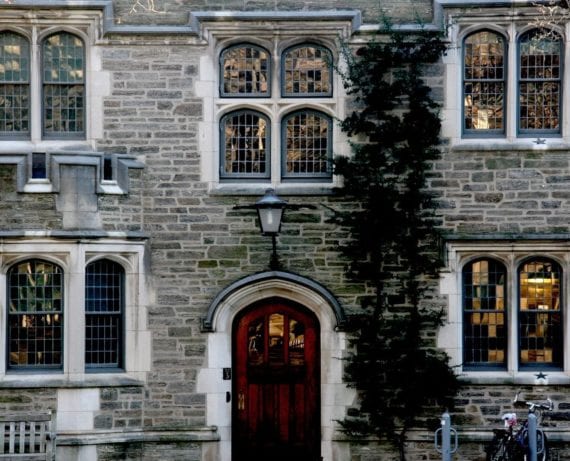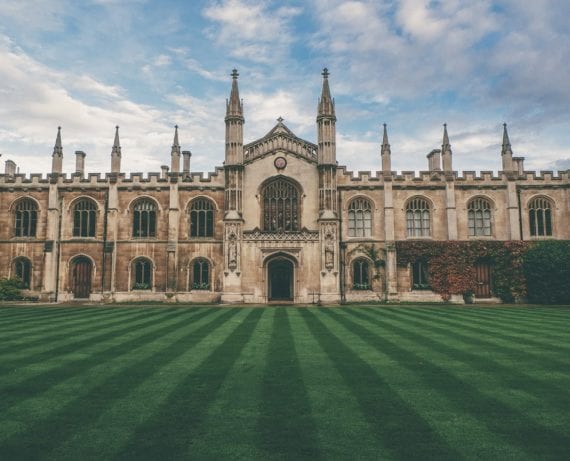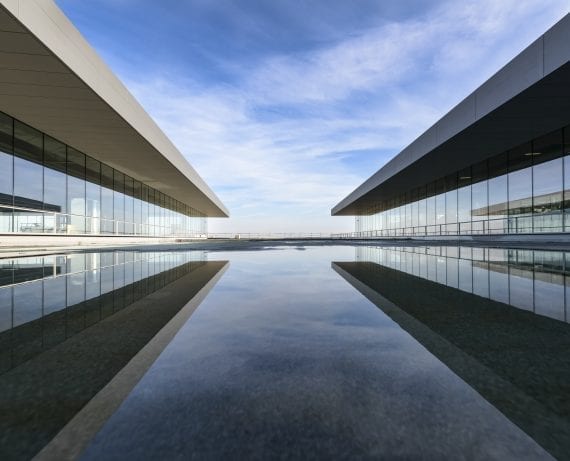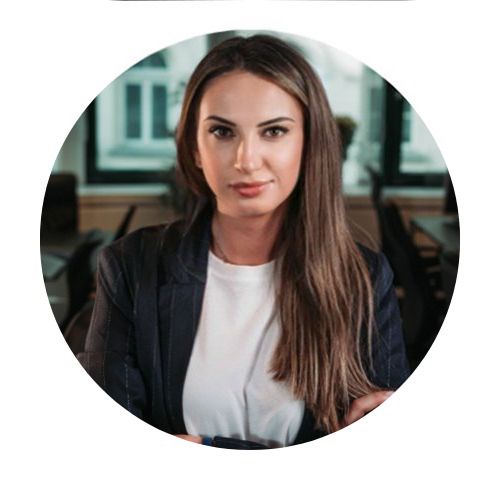The Education System in Denmark
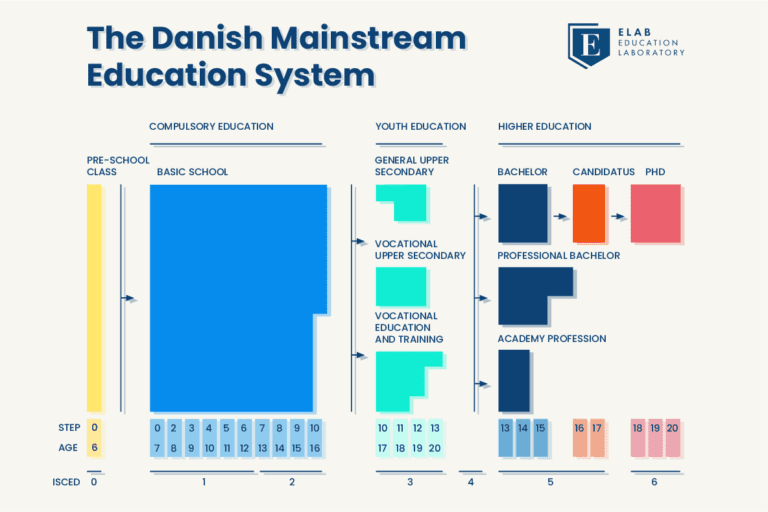

The Education System in Denmark
Education System in Denmark.
Denmark is a highly developed and affluent country, with a liberal mindset and high standard of living. Danes are among the happiest people on the planet, according to researchers, and if you are accepted at a Danish university, you will find modern facilities, rich resources, a collaborative approach to learning, and an emphasis on group and project work.
The Danish literacy rate is an extremely high 99 percent, and the majority of Danes speak English.
Although Danish universities teach a limited number of undergraduate courses in English, currently around 70 in total, the majority of English-taught programmes are taught at postgraduate level.
The Danish government offers international students free Danish lessons, and it might be worth considering signing up for these, since certain courses are hybrids, teaching partly in Danish and partly in English -which would widen your choices considerably.
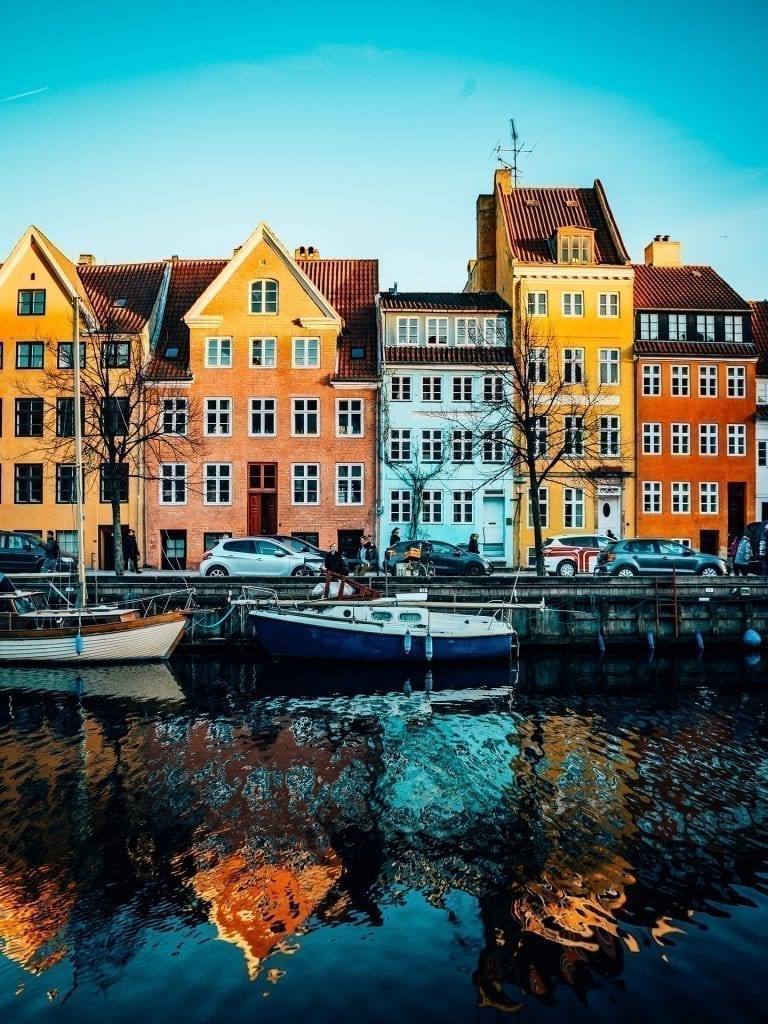

The Danish education system - stages
The Danish education system – stages
Education System in Denmark – Folkeskole is the general term used to describe pre-school, primary and lower secondary schools. Many Danish children are sent to daycare at the age of nine months, and then at the age of three move on to kindergarten, where learning through constructive play is the focus of their education. Post-kindergarten, Danish children receive ten years of compulsory education.
Rote learning is not part of the education system in Denmark and, even at a very early age, teachers use a basic problem-solving approach, to encourage creative thinking and group collaboration. Classes are not graded, and formal tests are not fundamental to the Danish approach to learning.
Education System in Denmark – Although Denmark has both private and public schools – and some 15 per cent of pupils go to religious or international private institutions- the public sector is totally free of charge. Specialisation starts in secondary school, which lasts from two to four years, and is made up of three types of institutions:
Gymnasiums -the academic option
Secondary schools where students follow the HHX programme which focusses on international trade and lasts for three years, or the HTX programme which is more technology and science oriented.
The two-year Higher Preparatory Examination Programme (HF) is practically focussed and sets out to prepare students for admission to vocational colleges or, if it is combined with an extended subject package, provides access to university bachelor’s programmes. HF lasts for two years.
Vocational programmes –EUD and EUX – are generally based in internship venues, such as shops, workshops, industrial workplaces, or kitchens. Instead of sitting the secondary school examination, the STX, students on the EUX programme- which combines a vocational strand with a high school diploma – develop professional as well as academic knowledge and have the same access to higher education as their peers.
Apprenticeships.
Education system in Denmark - Higher education paths
After finishing their secondary education, students can go to one of five different types of higher education institutions:
- Universities – there are eight universities in the country, where you can get a graduate and postgraduate qualification. The University of Copenhagen is the first to have been established, back in 1479, and remained Denmark’s only university until 1928, when Aarhus University was founded.
- University colleges -which offer professionally-oriented bachelor’s programmes and diplomas, but not postgraduate courses .Nursing, social work, teacher training, engineering and business are among the most popular subjects taught in these institutions.
- Business academies -there are nine business academies where you can do a two-year programme
- Maritime educational institutes
- Institutions which specialise in architecture, the arts, music, film and fine arts where you can gain a degree in these fields
Higher education paths in Denmark
Universities:
- Copenhagen Business School
- Aarhus University
- Roskilde University
- University of Southern Denmark
- IT University of Copenhagen
- Aalborg University
- University of Copenhagen
- Technical University of Denmark
University Colleges:
- KEA, Copenhagen School of Design and Technology
- Danish school of Media and Journalism
- University College Absalom
- University College Copenhagen
- University College Lillebaelt
- University College of Northern Denmark
- VIA University College
- University College of South Denmark
Business Academies:
- IBA International Business Academy
- Business Academy Aarhus
- Business Academy of Higher Education MidWest
- Copenhagen Business Academy
- Danish Academy of Business and Technology
- EA Business Academy
- Lillebaelt Academy
- Zealand Institute of Business and Technology
Institutions of Art and Architecture:
- Royal Danish Academy of Fine Arts
- Royal Danish Academy of Music
- Royal Academy of Music
- Aarhus School of Architecture
- National Film School of Denmark
- Design School, Kolding
- Rhythmic Music Conservatory
- Danish National Academy of Music
- Danish National School of Performing Arts
Education System in Denmark – Denmark has a two-level approach to undergraduate studies. You begin by taking an AP (Academy Profession ) degree, which lasts for 2 to 2.5 years and is the equivalent of 120/150 points on the ECTS scale. You then have two options on finishing the course: you can take a Top-Up course, to gain a Bachelor’s degree, or you can go straight into employment. The Top-Up Bachelor normally lasts from 18 months to two years.
The teaching style of the Danish higher education system
The Danish higher education system is built around group work, projects, lectures, and tutorials, as well as enjoying close links with industry and creating an international outlook through partnerships with other national institutions and promoting foreign placements and internships. You will work in small groups and a cooperative atmosphere, where lecturers are often addressed by their first names and are accessible to their students and supportive when it comes to dealing with academic and personal concerns. Denmark has an egalitarian philosophy, and this is reflected in its education system.
Where can I get a bachelor’s degree in Denmark, taught in English?
Bachelor’s degree in Denmark, taught in English you can find:
- Aarhus Business Academy
- Danish National Academy of Music
- VIA University College
- University College of Northern Denmark
- University College, Absalon
- Danish School of Media and Journalism
- Dania Academy
- International Business Academy
- KEA- Copenhagen School of Design and Technology
- UCL University College
- University College, Copenhagen
- University College, South Denmark
Contact Elab
to discuss your options and choices and to get any additional information you might need on where to study in Denmark.
How do I apply to a Danish university?
You can apply for up to eight courses by opening an account on Denmark’s central application platform, Optagelse. This is the central admissions system, which opens on 1 February and closes on 15 March. Any applications which fall outside these dates will not be considered by the Danish universities and you will have to wait a full year to submit your papers.
What documents will I need to apply through the Optagelse system?
In order to apply to study in Denmark through Optagelse, you will need to provide: your certificates, a chart of the hours you have studied specific subjects, the English language examination you have passed and the result or grade, and evidence of your identity or your passport. Do not overlook the study hours requirement, since this is very important in the application process and admissions boards want to see evidence that you have some school-based knowledge of the field you are asking to study. Certain universities may also ask you to submit a Personal Statement, references, a CV and a Verification Form. Once you have uploaded your documents you will need to print out the Signature Page, since an electronic signature is not enough, scan it and send it directly to the university. You should expect to receive a reply within six weeks
Applying for the right to stay in Denmark as a foreign student
On arriving to start your studies in Denmark, you are entitled to stay for three months before you need to secure a registration certificate. The process is free, and it will take you seven days or so to get the certificate.
You can register and apply for the right of abode at the local town hall or city hall. If you are not sure where this is, ask the students union, and someone will direct you to the right office.
You will need to supply a number of documents when you go there, including:
- An acceptance letter from the academic institution where you will be studying
- ID, either a passport or a national ID card if you are an EU student
- Two photographs
- Two submission forms requesting the right of abode
When your request has been processed and accepted, you will be allowed to stay in Denmark for three years.
You will automatically be granted an extra six months when you have graduated, to enable you to look for a job. Once you have had a positive response, you will be given a CPR number which you will need to find work, to apply for a telephone number and mobile phone contract, to quote when you want to see a doctor or a dentist, to sign up for a free course in Danish or submit an application for a debit card.
The acceptance letter will also include an important yellow card which you must put in a safe place.
You will need to show it whenever you visit a doctor’s surgery and to access any type of medical service.
Non-EU students are entitled to use emergency medical services, but in all other circumstances, they will have to rely on their health insurance policies to cover their costs.
Study in Denmark with Elab
Denmark Study Programmes
Education System in Denmark - costs of studying in Denmark
Education System in Denmark – Denmark is ranked the fifth most expensive country in the world (2020), so it is fortunate that EU students do not have to pay tuition fees at university
When it comes to living costs, you will need to budget around 1,200 euros a month for accommodation, food etc. Most students buy bicycles in order to economise on travel costs, which are around 50-70 euros a month.
Copenhagen is, naturally enough, more expensive than other parts of the country, so you would be well advised to get an early application in for a place in a hall of residence, if you want to attend university in the capital, since private accommodation can cost you 900 euros a month, whereas halls charge a far lower 250.
As an EU student, you are entitled to apply for financial aid and will have exactly the same rights as Danish students under EU law if you meet two conditions: you have lived in Denmark for five years, OR you have status as a worker.
The grant to apply for is the SU, see below.
What is SU?
The SU, or the Danish State Educational Support scheme, is a social grant which is given to every student as long as they:
- have a CPR number which confirms their right of abode
- are following a course of studies
- are working legally for a minimum of 43 hours a month
- have a Danish bank account
SU is, on average, around 5500 DKK, gross –i.e., before any deductions – which is loosely equivalent to 750 euros.
Once you have started working, apply to the SU office at your university, whose consultants will help you.
A month after starting work, you will be given a certificate which confirms where you are working and the number of hours you are employed – you need to pass this on to your SU consultant, along with a copy of your employment contract.
You should receive your first SU payment two months after you start your job.
Remember that you will not be in a position to take long summer breaks if you wish to retain your financial aid, so those two month summer holidays lounging on a beach will be a thing of the past. However, the SU is a generous payment which will allow you to live comfortably, when added to your working wage.
As a result, you will not have to worry about money while studying in Denmark.
I am interested in studying in Denmark, what is the first step?
Denmark is a wonderful country, which welcomes international students and offers a range of locations and courses.
If you are considering studying in Denmark, then you will benefit from Elab’s Europa program, which covers Europe’s best universities and enables participants to make the right, informed choices. Call or drop us an email and we can set up a meeting with one of our specialist consultants, face to face or online, and go through what you are looking for and what Denmark can offer to suit your interests and future career plans.
We have sent many students to Danish universities and can put you in touch with alumni and individuals who are currently studying in Denmark, so you can get the inside story and a rich picture of the reality of studying in Denmark.
Elab is here to help you. We can give you any information you may need on life in Denmark, degree courses, the towns, and cities where you can study and practical suggestions on how to start your life in Denmark, employment, and costs.
Get in touch – we are waiting to hear from you.
Start your Denmark Application
Contact Elab. We can help you prepare a professional application on a pro-bono basis.









